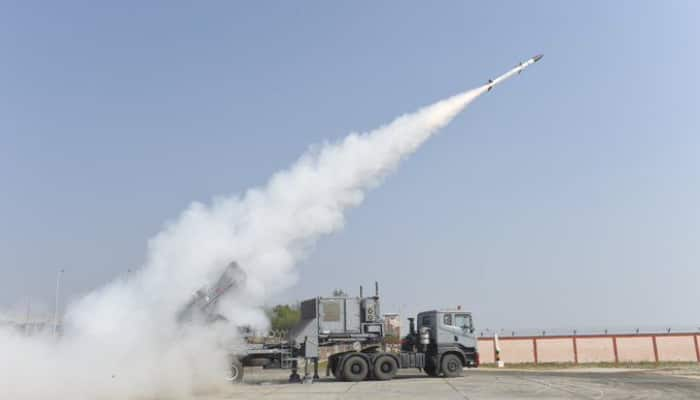India ships 1st Akash air defence system battery to Armenia

New Delhi: In a significant step towards its defence export potential, India on Monday (Nov 11) shipped the first Akash weapon system battery to Armenia, which is undergoing a fragile peace process with Azerbaijan. Developed by Defence Research & Development Organisation (DRDO) and built by Bharat Electronics Limited (BEL), each battery of the Akash weapon system comprises a single Rajendra 3D passive electronically scanned array radar and four launchers with three missiles each, all of which are interlinked.
Akash is a surface-to-air missile (SAM) system that can be deployed to protect against a variety of aerial threats, including fighter jets, cruise missiles, and air-to-surface missiles.
Secretary of Defence Production in the Ministry of defence, Sanjeev Kumar “flagged off the 1st Akash Weapon System Battery to a Friendly Foreign Country.”
“This event reflects India’s growing capabilities in defence technology and manufacturing,” Bharat Electronics Limited (BEL) said on Monday.
In 2022, Armenia inked a deal with India to procure 15 Akash missile systems worth Rs 6,000 crore. Armenia became the first foreign country to buy these missile systems.
“BEL contributed to this achievement by providing key Ground Support Equipment, including Surveillance Radars, Missile Guidance Radars, and C4I systems,” the DPSU said.
The system is highly mobile and can be deployed on both wheeled and tracked vehicles.
Countries like Vietnam, Egypt and the Philippines have expressed interest in the Akash weapon system. Indian Air Force and the Indian Army have already operationalized the Akash air defence system.
Russia has been the major supplier of arms and ammunition to Armenia over the past decade, accounting for 94 percent of Yerevan’s arms imports from 2011 to 2020.
Amid its ongoing conflict with Azerbaijan, Armenia has been trying to enhance its strike capabilities significantly. And the reason why Yerevan is seeking alternative suppliers in part due to increasing tensions with Moscow amid the Kremlin’s ongoing war against Ukraine.